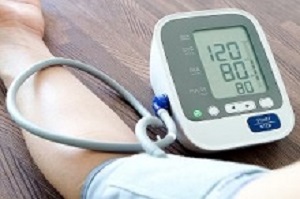 Exposure to blue light light significantly decreases blood pressure, reducing the risk of developing cardiovascular disease, a study from the University of Surrey and Heinrich Heine University Dusseldorf in collaboration with Philips reports.
Exposure to blue light light significantly decreases blood pressure, reducing the risk of developing cardiovascular disease, a study from the University of Surrey and Heinrich Heine University Dusseldorf in collaboration with Philips reports.
During this study, participants were exposed to 30 minutes of whole-body blue light at approximately 450 nanometres, a dose comparable to daily sunlight – followed by exposure to a control light on a different day. Visible blue light, as opposed to ultraviolet (UV) light, is not carcinogenic. To assess the impact, participants' blood pressure, stiffness of arteries, blood vessel dilation and blood plasma levels of nitric oxide stores were measured before, during, and up to two hours after irradiation with both lights.
Researchers discovered that exposure to whole-body blue light significantly reduced the systolic blood pressure of participants by almost 8 mmHg, compared to the control light which had no impact. The reduction of blood pressure from blue light is similar to what is seen in clinical trials with blood pressure lowering drugs.
Besides blood pressure lowering effects, it was also uncovered that exposure to blue light improved other cardiovascular risk markers including reduction of arterial stiffness and increasing blood vessel relaxation. This further supports that light could be used to prevent cardiovascular disease, which kills over 150,000 people in the UK every year.
Researchers also found that exposure to blue light increased levels of nitric oxide which is an important signalling molecular that protects the cardiovascular system. It is believed that blue light releases from the skin into the blood stream where it relaxes the blood vessels, increasing blood flow and decreasing blood pressure.
Christian Heiss, professor of cardiovascular medicine at the University of Surrey and National Health Service (NHS) consultant, said: "Exposure to blue light provides an innovative method to precisely control blood pressure without drugs. Wearable blue light sources could make continued exposure to light possible and practical. This would be particularly helpful to those whose blood pressure is not easily controlled by medication, such as older people."
Abstract
Aims: Previous studies have shown that ultraviolet light can lead to the release of nitric oxide from the skin and decrease blood pressure. In contrast to visible light the local application of ultraviolet light bears a cancerogenic risk. Here, we investigated whether whole body exposure to visible blue light can also decrease blood pressure and increase endothelial function in healthy subjects.
Methods: In a randomised crossover study, 14 healthy male subjects were exposed on 2 days to monochromatic blue light or blue light with a filter foil (control light) over 30 minutes. We measured blood pressure (primary endpoint), heart rate, forearm vascular resistance, forearm blood flow, endothelial function (flow-mediated dilation), pulse wave velocity and plasma nitric oxide species, nitrite and nitroso compounds (secondary endpoints) during and up to 2 hours after exposure.
Results: Blue light exposure significantly decreased systolic blood pressure and increased heart rate as compared to control. In parallel, blue light significantly increased forearm blood flow, flow-mediated dilation, circulating nitric oxide species and nitroso compounds while it decreased forearm vascular resistance and pulse wave velocity.
Conclusion: Whole body irradiation with visible blue light at real world doses improves blood pressure, endothelial function and arterial stiffness by nitric oxide released from photolabile intracutanous nitric oxide metabolites into circulating blood.
Authors
Manuel Stern, Melanie Broja, Roberto Sansone, Michael Gröne, Simon S Skene, Joerg Liebmann, Christoph V Suschek, Matthias Born, Malte Kelm, Christian Heiss
[link url="https://www.sciencedaily.com/releases/2018/11/181108110032.htm"]University of Surrey material[/link]
[link url="https://journals.sagepub.com/doi/10.1177/2047487318800072"]European Journal of Preventative Cardiology abstract[/link]
